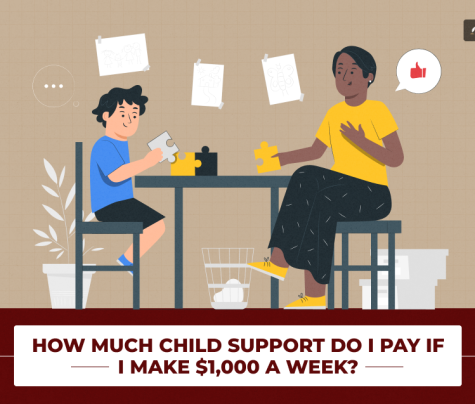
Objections from the opposing party are constant in the realm of fighting court cases, whether in negotiation, mediation, or courtroom proceedings.
Hence, the objections should be addressed in the most effective approaches or, say, the most critical skill in this development. It has quite a significant impact on the case’s outcome and the interest of the client.
In this article, we will explore how family lawyers counter the objectives of opposing lawyers. Besides, we will also examine the tactics and strategies that professionals employ to navigate these challenges while advancing their clients’ objectives.
Understanding Objections In Family Law Cases

Objections in family law cases can take different forms, which include:
- Relevance Objections: Opposing counsel may object to the evidence or testimony on the grounds. It is irrelevant or immaterial to the issues at hand.
- Hearsay Objections: Objections based on the hearsay rule, which prohibits the admission of out-of-court statements offered for the truth of the matter asserted.
- Authentication Objections: Impediments to the authenticity or admissibility of records, documents, or exhibits laid down as evidence.
- Foundation Objections: Objections that directly question the very foundation for introducing the testimony or evidence.
- Speculation Objections: Objections to conjectural statements or speculations made by the witnesses or concerned parties.
- Improper Characterization Objections: Challenges to the characterization or the interpretation of testimony.
- Form Objections: Objections based on the different forms or phrasing of questions asked during the examination.
Family lawyers must be prepared to respond to objections effectively while adhering to procedural rules and evidentiary standards governing their jurisdiction.
Strategies For Handling Objections
Handling the opposition of the opposing party is undoubtedly one of the core challenges in fighting such family feud-related cases.
This is where the capability, skills, knowledge, and resilience of the lawyer come to you. These family lawyers are experts, and they are all aware of the challenges they have to face from the opposite party.
However, with the right strategy, they can counter the opponent’s strategic objections. So, let’s understand the situation in this section so that you know the approaches.
1. Anticipating Objections
Proactive preparation is important in handling objections effectively. Moreover, family lawyers anticipate objections based on the witnesses, evidence, and issues involved in the case.
Ultimately, by conducting a thorough case analysis and pre-trial preparation, attorneys can pinpoint the most vulnerable areas and thereafter develop the right strategies to address the core objections as they crop up.
2. Objecting Strategically
Family lawyers are not only prepared to respond to the objections. At the same time, they also strategically object when necessary. However, attorneys protect the clients’ rights by objecting to improper testimony or evidence.
At the same time, they preserve the legal issues associated with appeal and shape the cases’ narrative. Strategic objections may also prompt the opposing party to consider the approach or weaken its position.
3. Responding Calmly And Professionally
In the face of objections, maintaining composure and professionalism is essential. Family lawyers respond to objections calmly and confidently without becoming confrontational or adversarial.
By remaining composed, attorneys project credibility and authority while effectively countering the opposing party’s arguments.
4. Arguing Merits And Legal Standards
When addressing objections, family lawyers focus on the merits and legal standards governing admissibility.
They articulate clear and concise arguments supported by case law, statutes, and procedural rules.
By citing relevant authority and precedent, attorneys who focus on the practice of family law in Denver, Colorado bolster their positions and persuade the court to overrule objections.
5. Offering Alternative Grounds
In some cases, family lawyers offer alternative grounds for admitting evidence or testimony in response to objections.
By providing alternative theories or justifications, attorneys increase the likelihood of overcoming objections and persuading the court to admit the proffered evidence.
6. Making Offers Of Proof
When evidence or testimony is excluded due to objections, family lawyers may make offers of proof to preserve the record for appeal.
Offers of proof involve summarizing the substance and relevance of excluded evidence or testimony, demonstrating its importance to the case. By making a clear record, attorneys lay the groundwork for potential appellate review.
7. Seeking Clarification From The Court
Family lawyers may seek clarification from the court when addressing objections, especially regarding complex legal or evidentiary issues.
Attorneys respectfully request guidance from the presiding judge or magistrate to clearly understand the basis for objections and the court’s ruling.
8. Adapting Strategies As Needed
Flexibility is essential when handling objections in family law cases. Family lawyers adapt their strategies in real time based on the specific circumstances and dynamics of the proceeding.
They remain vigilant and responsive to changes in the direction of the case, opposing counsel’s tactics, and judicial feedback.
Leveraging Technology And Resources
In modern family law practice, attorneys leverage technology and resources to enhance their effectiveness in handling objections.
Legal research tools, case management software, and virtual courtroom platforms provide attorneys with access to information, collaboration tools, and courtroom technology that streamline case preparation and presentation.
By harnessing these resources, family lawyers are better equipped to navigate objections and advocate for their client’s interests efficiently.
How To Look For A Good Family Lawyer?

This article is all about the strategies and approaches family lawyers follow to counter the objections of the opposing party.
Simultaneously, knowing about the effective counter-strategy, you need to develop an idea regarding the selection of the lawyer.
First Consider Referrals
The best way to find a good-quality family lawyer is to consider referrals. You can ask your friends, members of the family, or colleagues if they know about a bona fide lawyer.
If they were satisfied and benefitted by taking the service, they will surely recommend you to the law firm. Hence, you can get the help of referrals to get a legal expert with a fair reputation and track record of success.
Check Out The Online Reviews
It is easy to find good lawyers online because it is the internet age. Good Law firms have websites where they give every detail regarding the different lawyers on Google and Yelp.
These reviews are highly effective, and by watching them and their reputations, the lawyer gets quality services.
Have A Look At Their Qualifications And Experience
While looking for a family lawyer, it is important to check out their qualifications and experience.
You must look for a lawyer who has enough experience in handling similar cases like yours. Also, thoroughly check their education and other qualifications to make sure that they have the expertise to handle such cases.
Schedule A Consultation
Once you have completely narrowed down your list of potential lawyers, it becomes key to schedule a consultation.
During the consultation, you need to ask the lawyer to share your experience, approach, and availability. At the same time, you have to ask them about their fees. Moreover, you can deeply understand the compatibility by talking to the lawyer.
Ask About The Fees
Considering the fees is one of the most crucial aspects of selecting a family lawyer. If these lawyers are not experienced, they will not charge hefty fees. But it does not mean you are going to select an attorney considering cheaper fees.
On the other hand, you can not select an attorney who charges higher fees. You may not be able to carry on for long.
Conclusion
Effectively handling objections from the opposing party is a fundamental aspect of family law practice.
Family lawyers must be prepared to anticipate objections, respond strategically, and advocate zealously for their client’s interests while adhering to procedural rules and evidentiary standards.
By employing the strategies outlined in this article, family lawyers can confidently navigate objections, preserve legal issues for appeal, and effectively advance their clients’ objectives.
In the ever-evolving landscape of family law, adeptly managing objections is a hallmark of skilled advocacy and professional excellence.
Read More…
Duties And Responsibilities Of A Family Lawyer In The US
Family Laws In Australia: Understanding Your Rights As A Parent
What If You Can’t Afford a Family Lawyer? Explore Options











0 Reply
No comments yet.